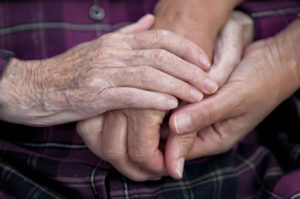
On September 18, 2023, CPR and a coalition of diverse advocates testified in favor of Senate Bill 109, which would establish a legal framework for Supported Decision-Making (SDM) in Massachusetts. To learn more about the bill and its companion, House Bill 1485, see the bill fact sheet.
My SDM team has supported me with my health care. . . SDM is important to me. . . In the end, my voice matters!
Amanda Jo Benoit, SDM Pilot Participant
As showcased in the testimony of Morgan Whitlatch, CPR’s Director of SDM Initiatives, at least 24 states and the District of Columbia have already passed statutes that formally recognize SDM agreements and/or require courts to consider SDM as a less-restrictive option before appointing a guardian. Rhode Island, New Hampshire, and Maine are among these states, and we strongly urge Massachusetts to join them. Michael Kendrick, CPR’s Senior Advisor on SDM Initiatives, focused his written testimony on CPR’s experience with piloting SDM with key partners, including Nonotuck Resource Associates and others, and the benefits we have seen the practice have in people’s lives.
CPR testified alongside other members of the Massachusetts Advocates for Supported Decision-Making (MASDM) Coalition, including people with disabilities and their supporters who talked about how SDM can transform lives.
” I have witnessed Supported Decision-Making, and I’ve seen the transformative power of it . . . It’s time for people with disabilities’ voices to be heard.”
Maggy Walto, Supporter in SDM Pilot
Two participants in the SDM pilots in Massachusetts prepared videos for the hearing to share their powerful stories.
Cory Carlotto, SDM Pilot Participant
James Cowell, SDM Pilot Participant
Please join us in supporting these important SDM bills, so that more Massachusetts residents can access and enforce this decision-making model.








